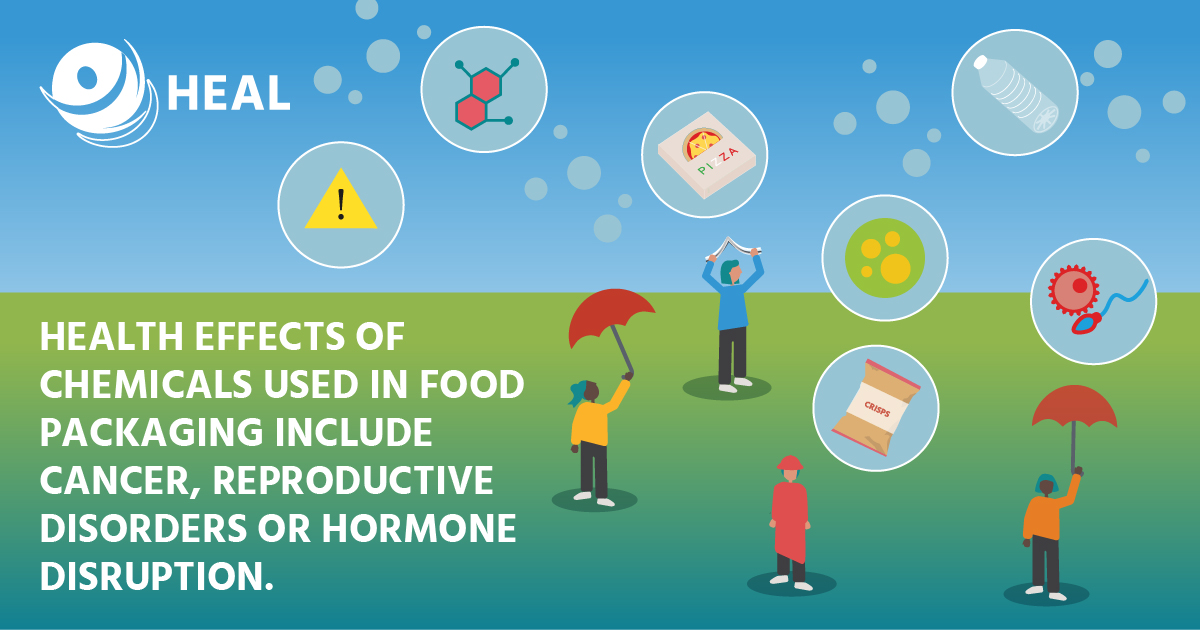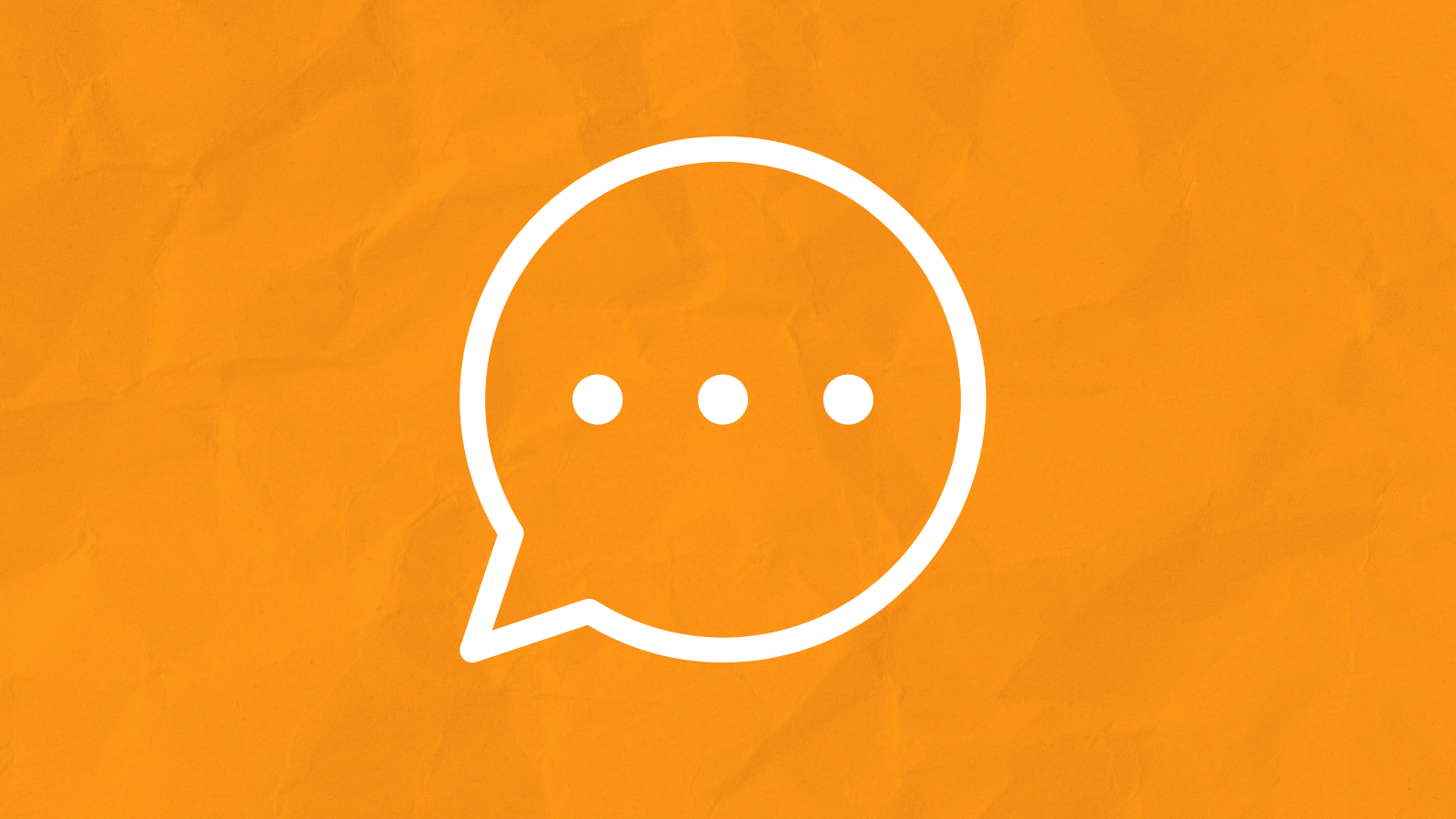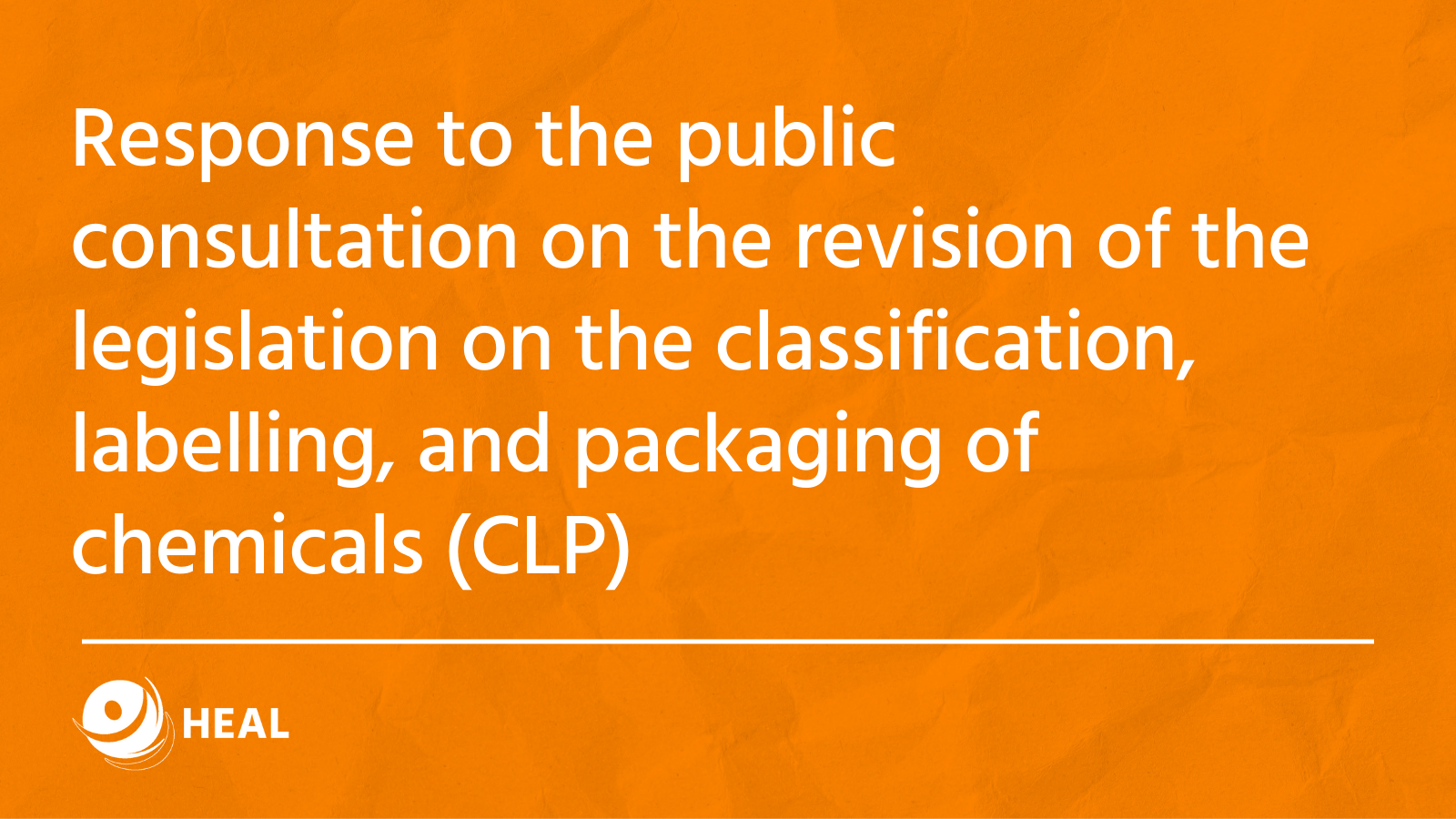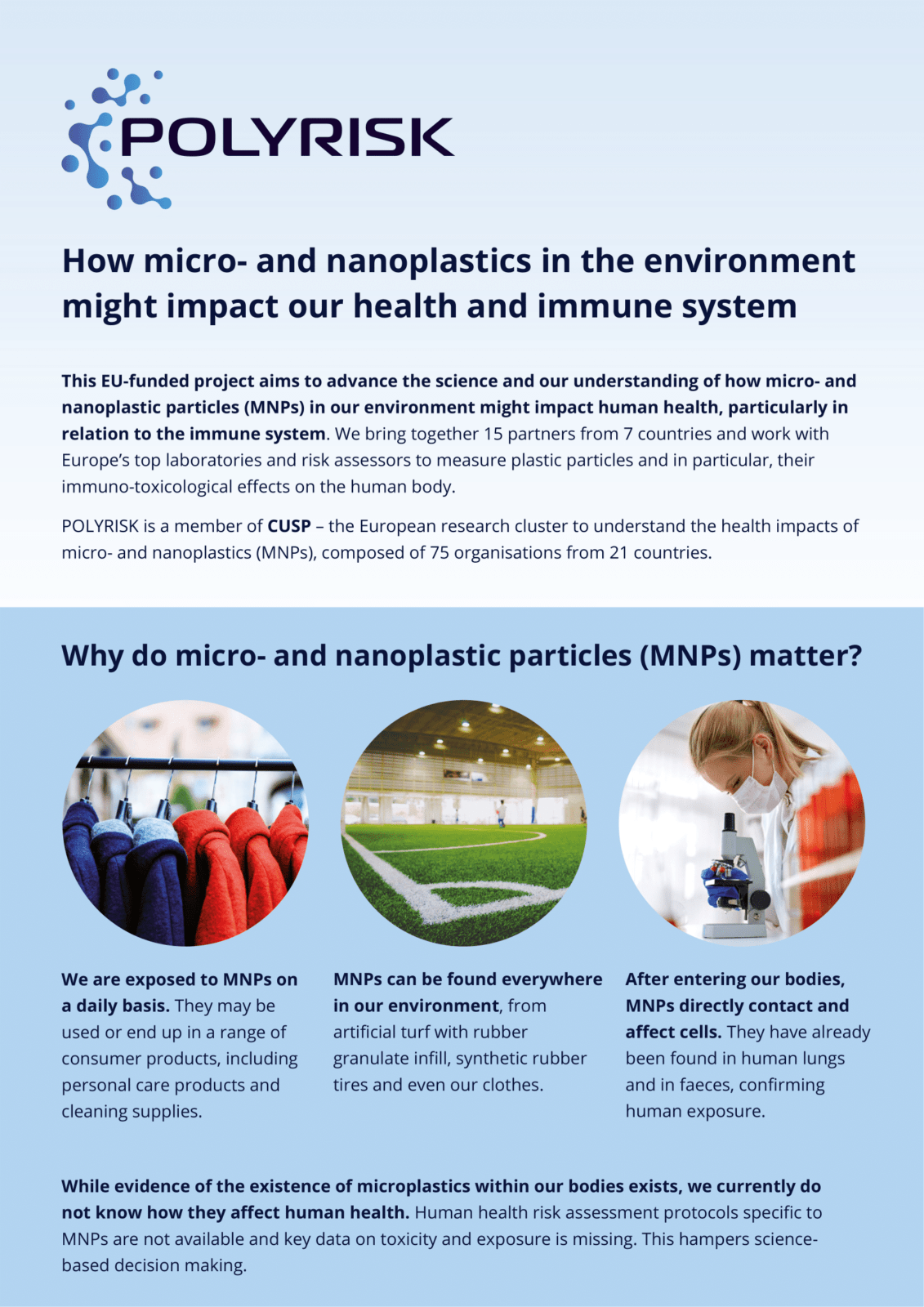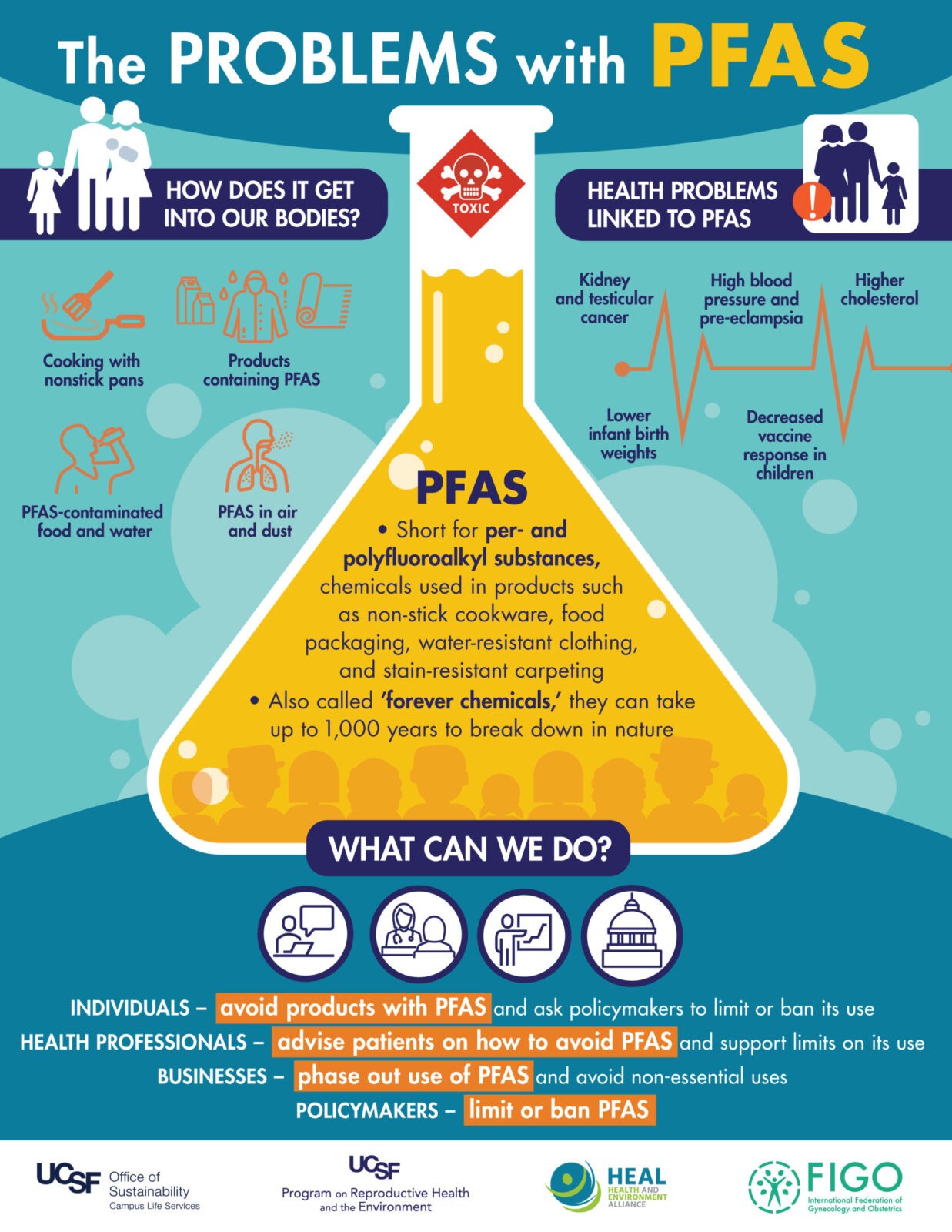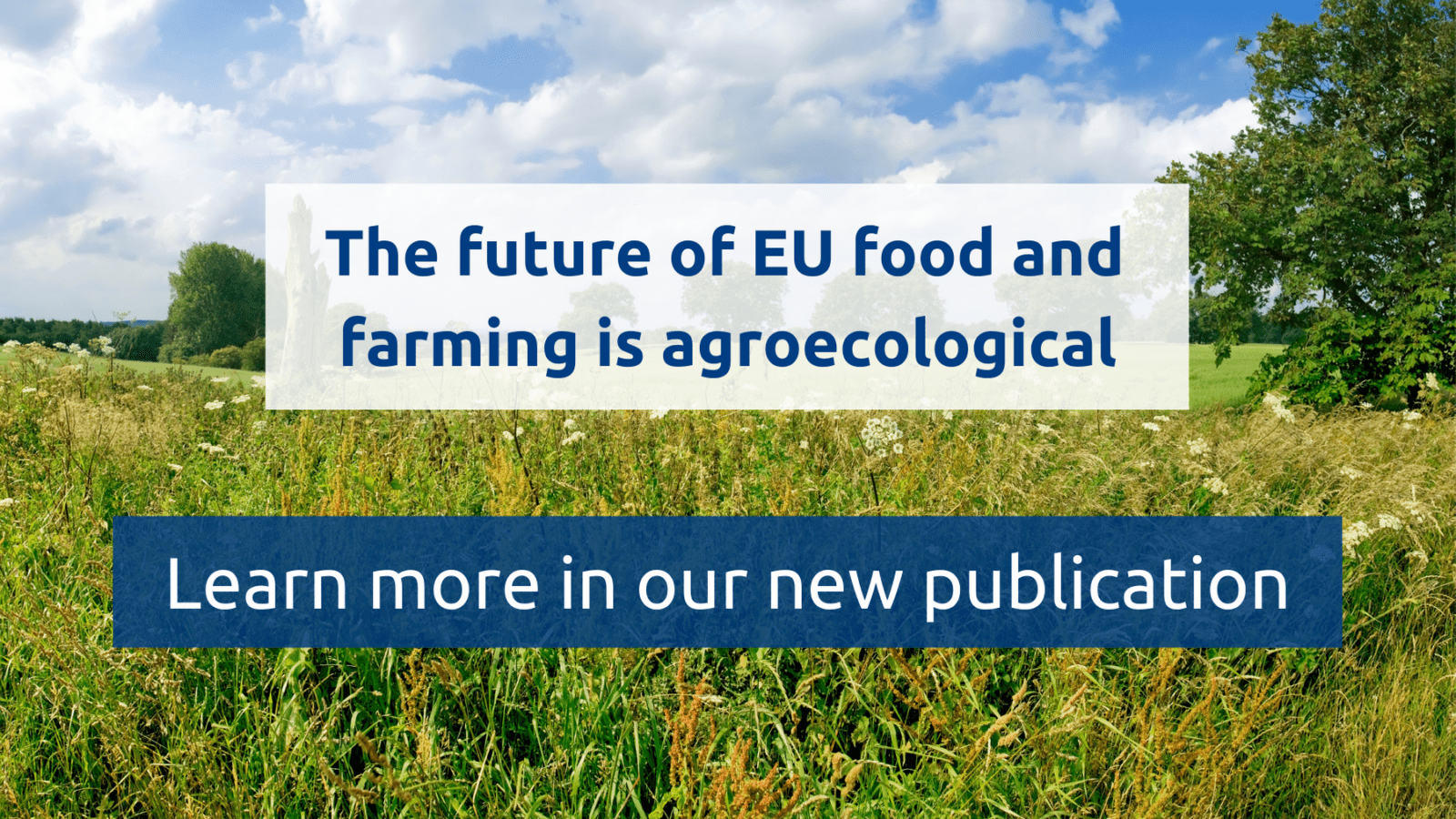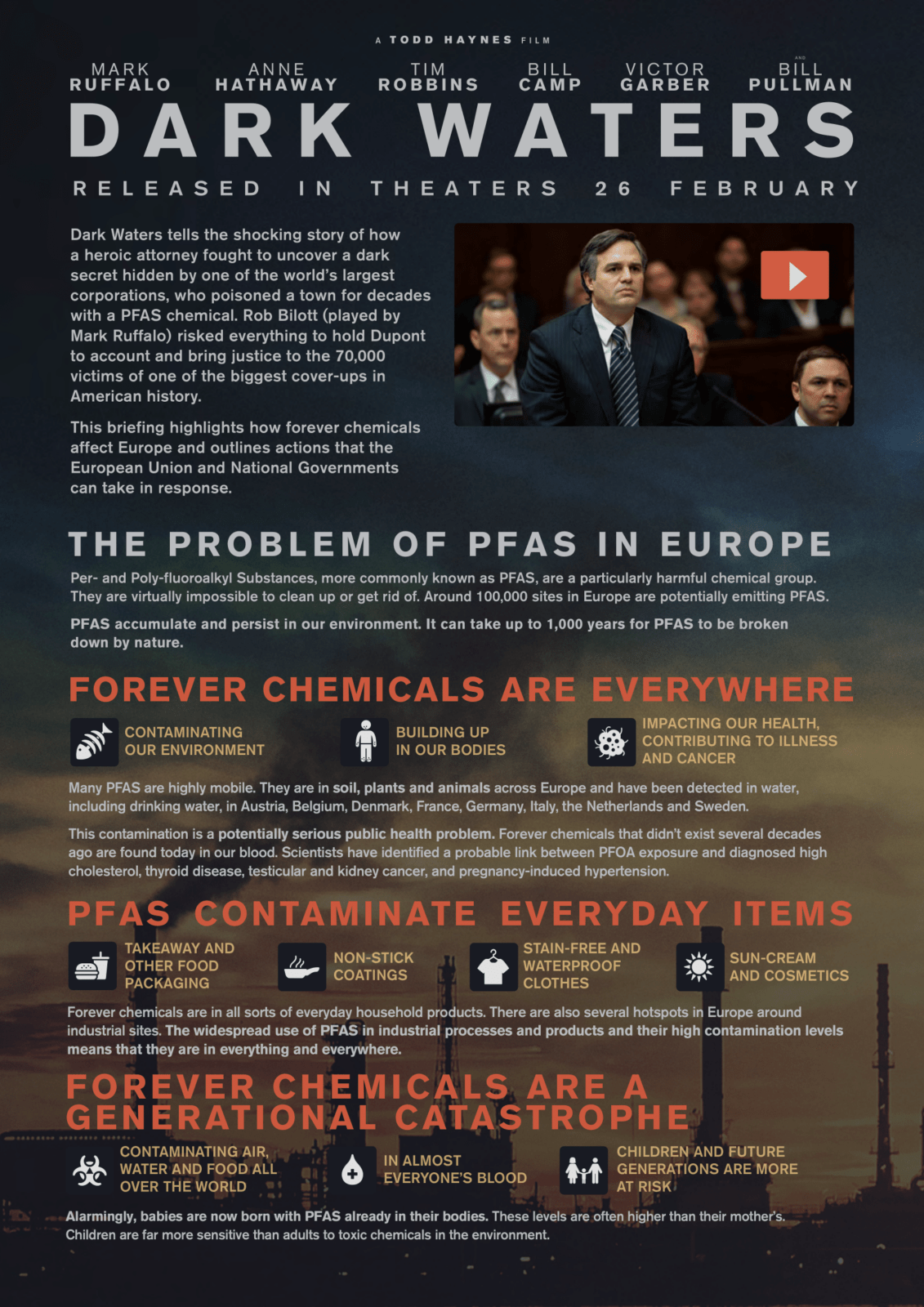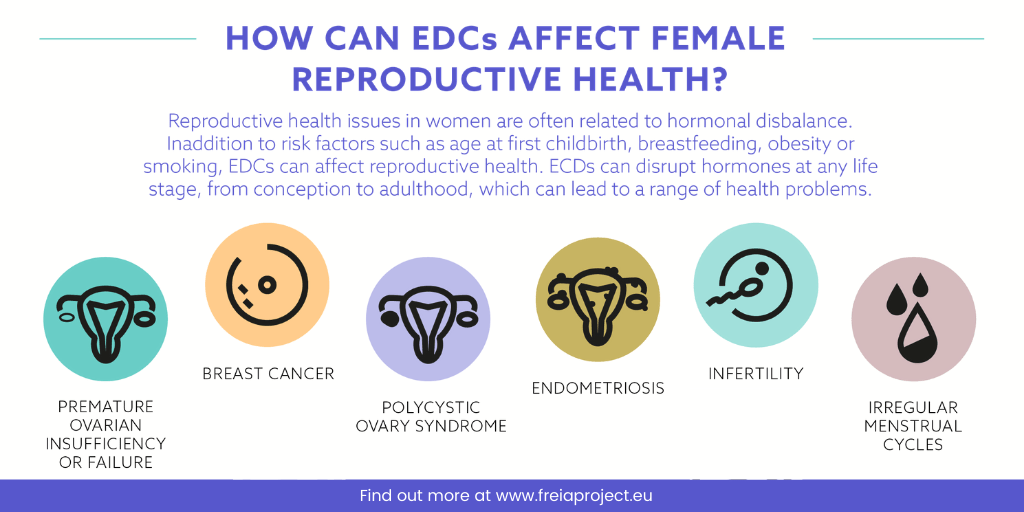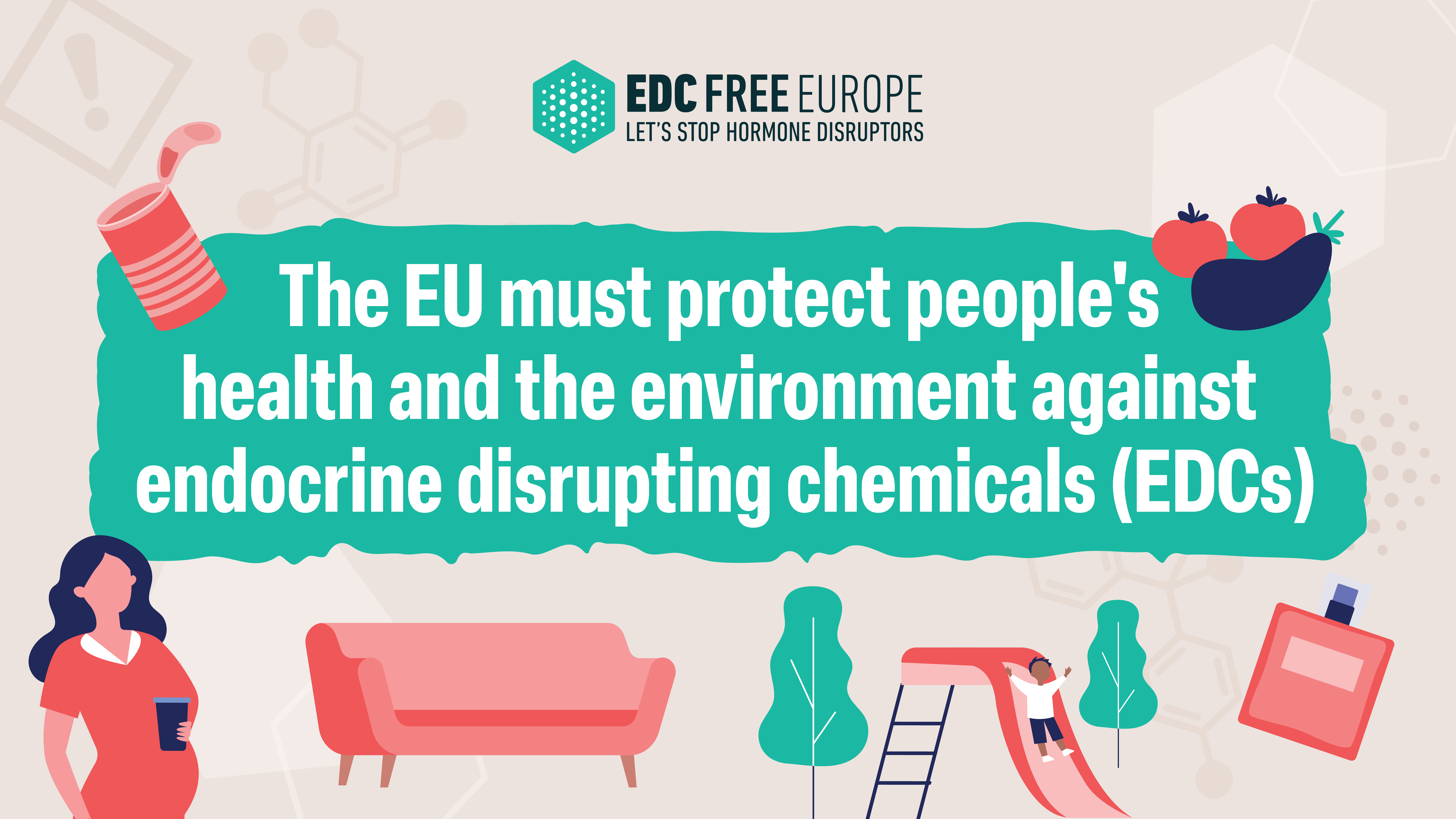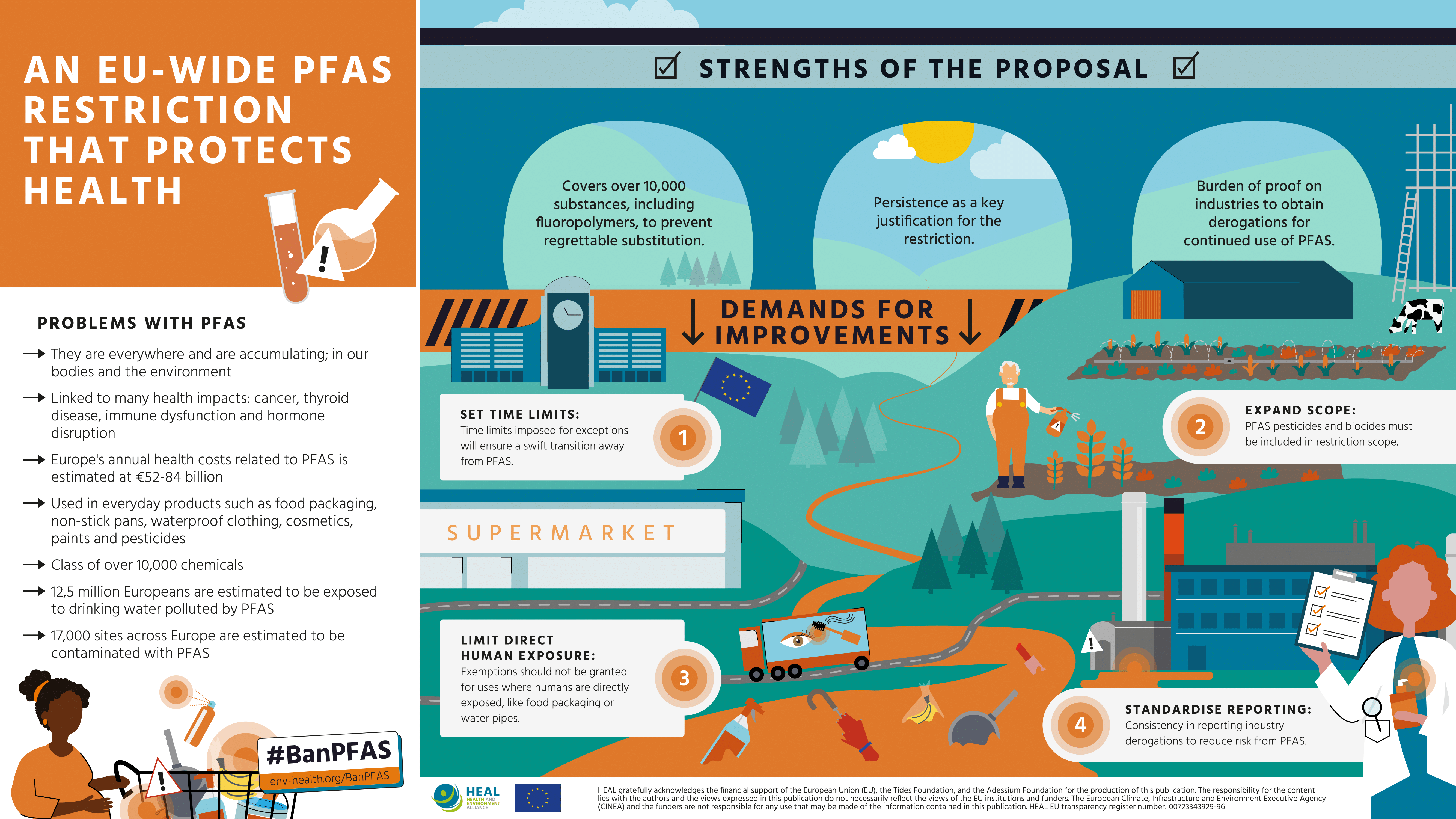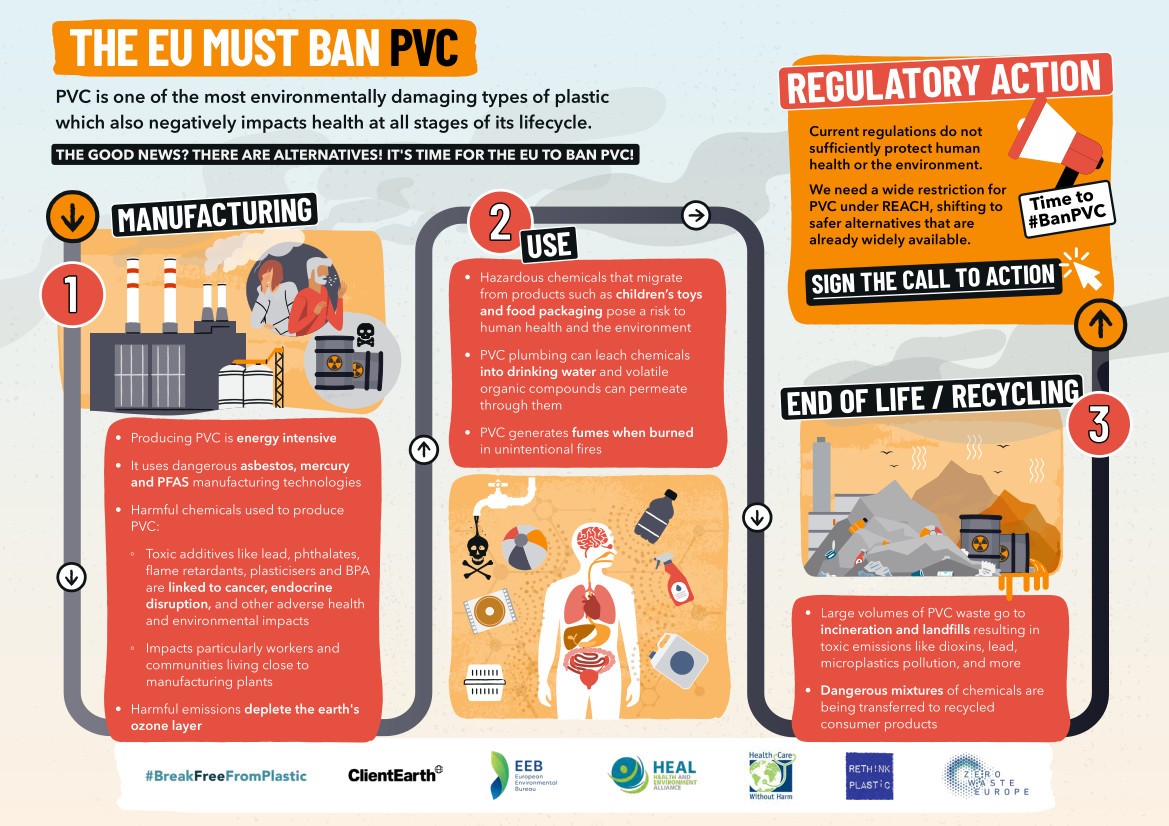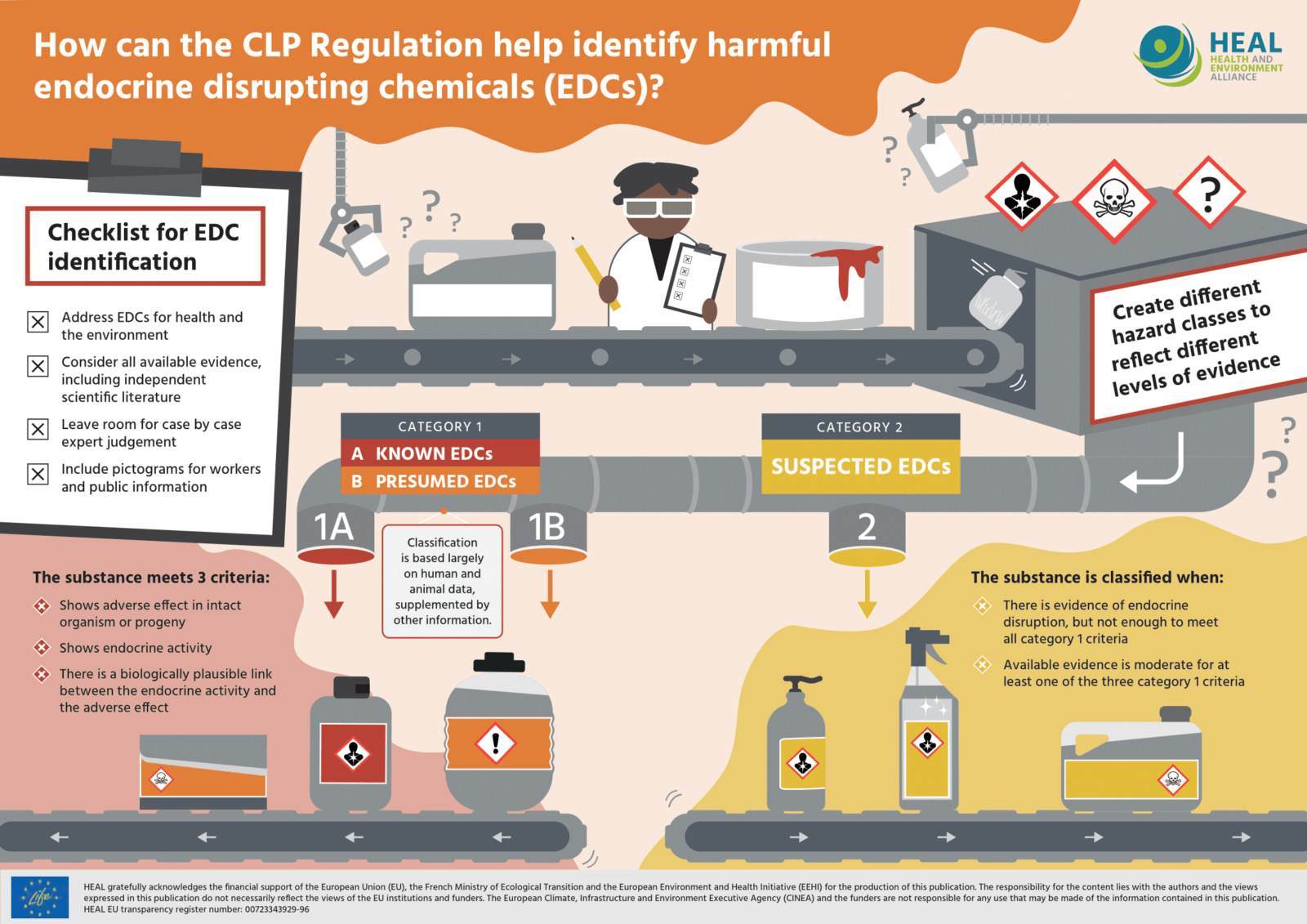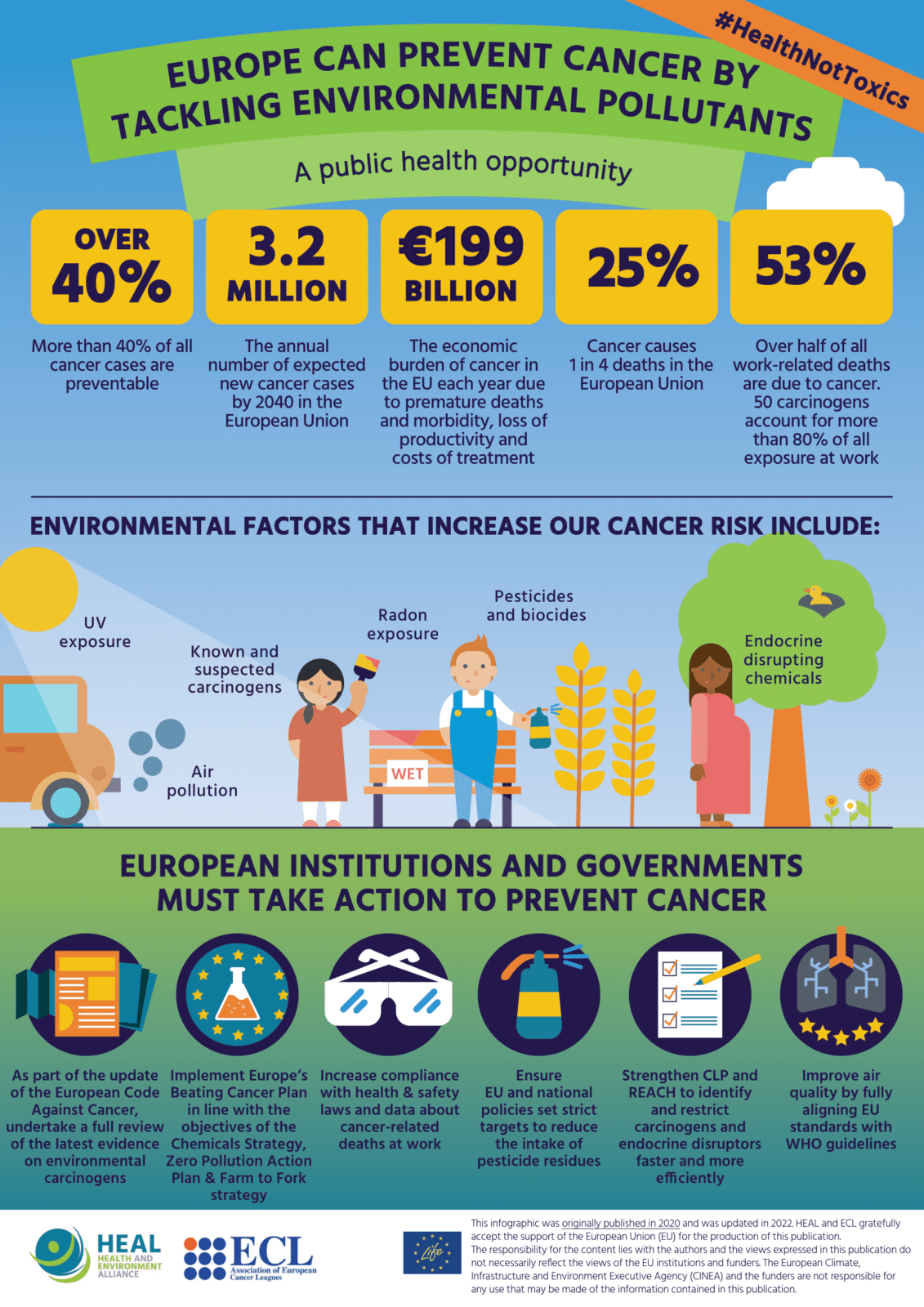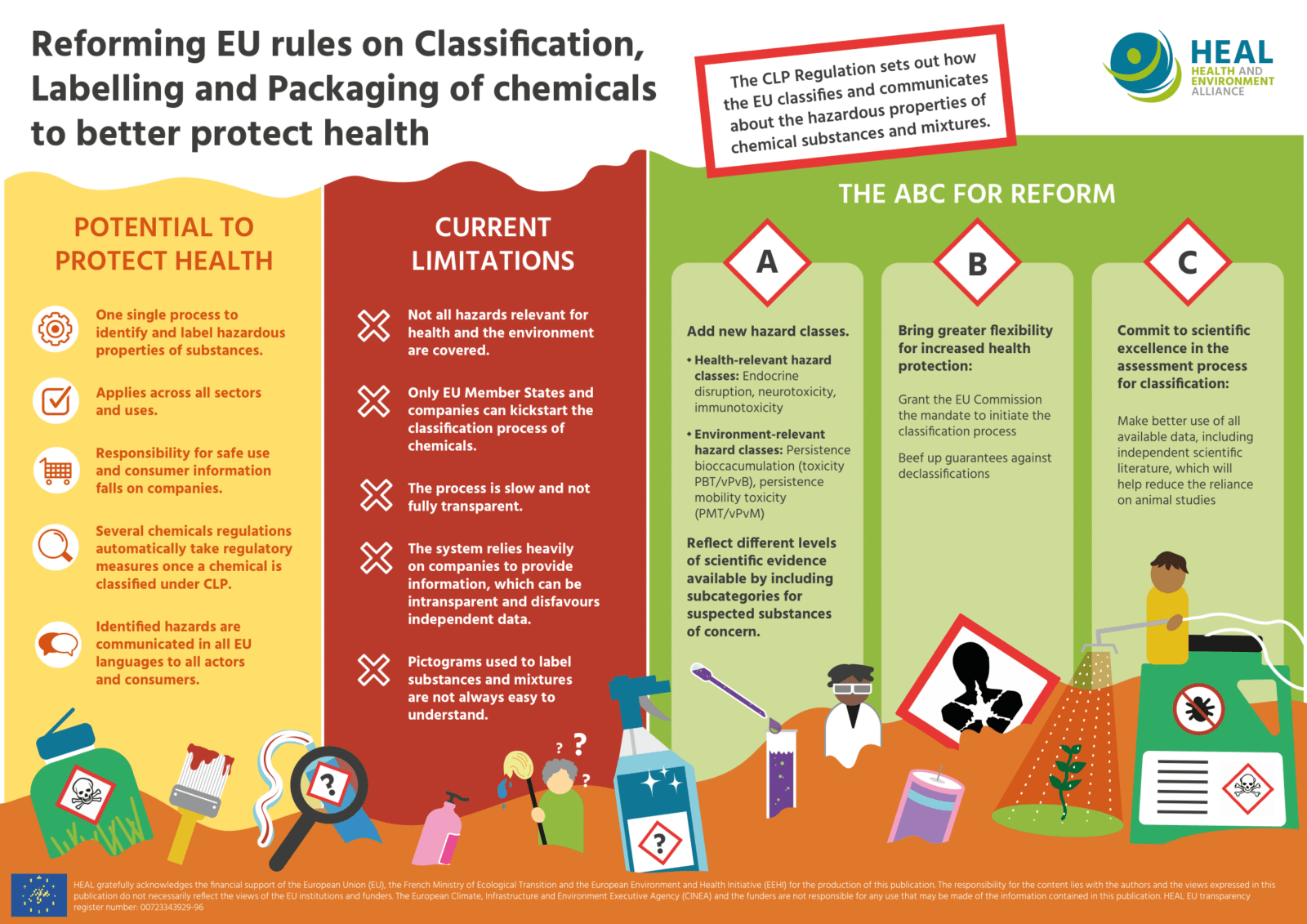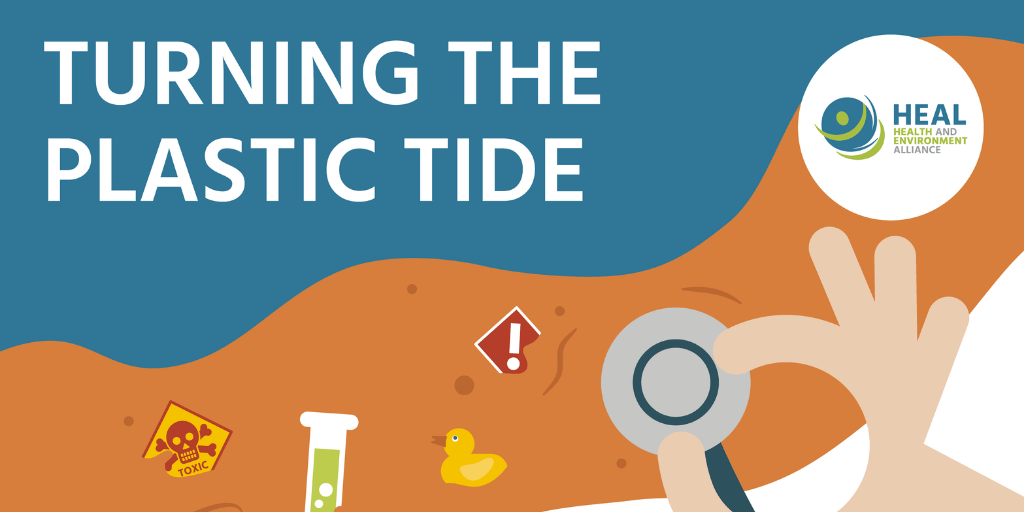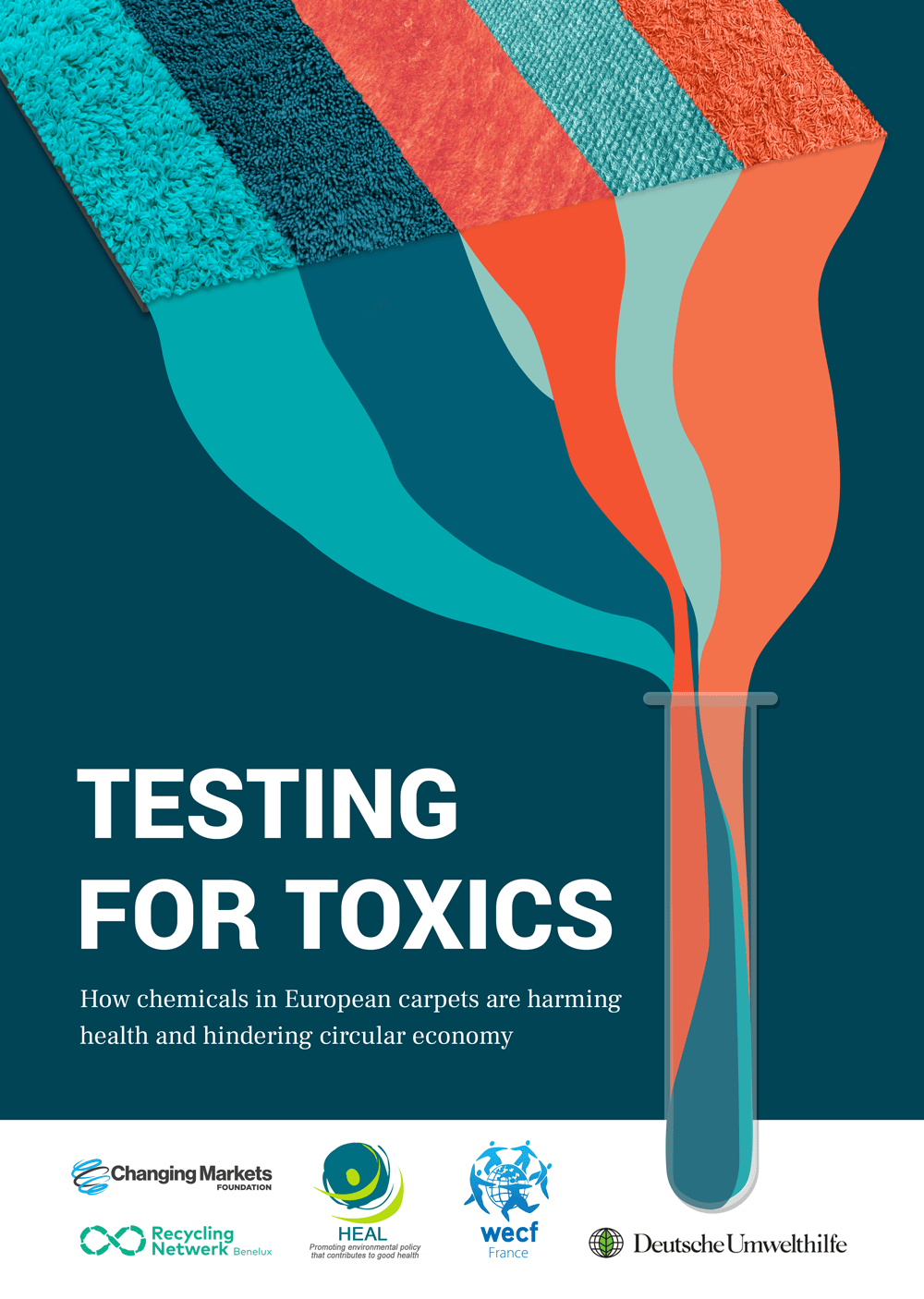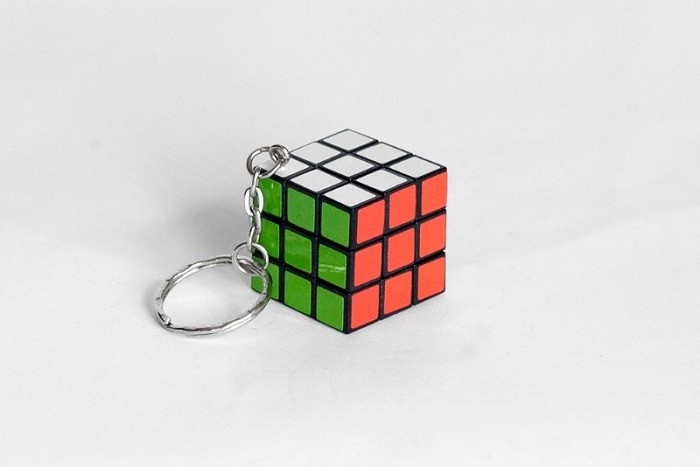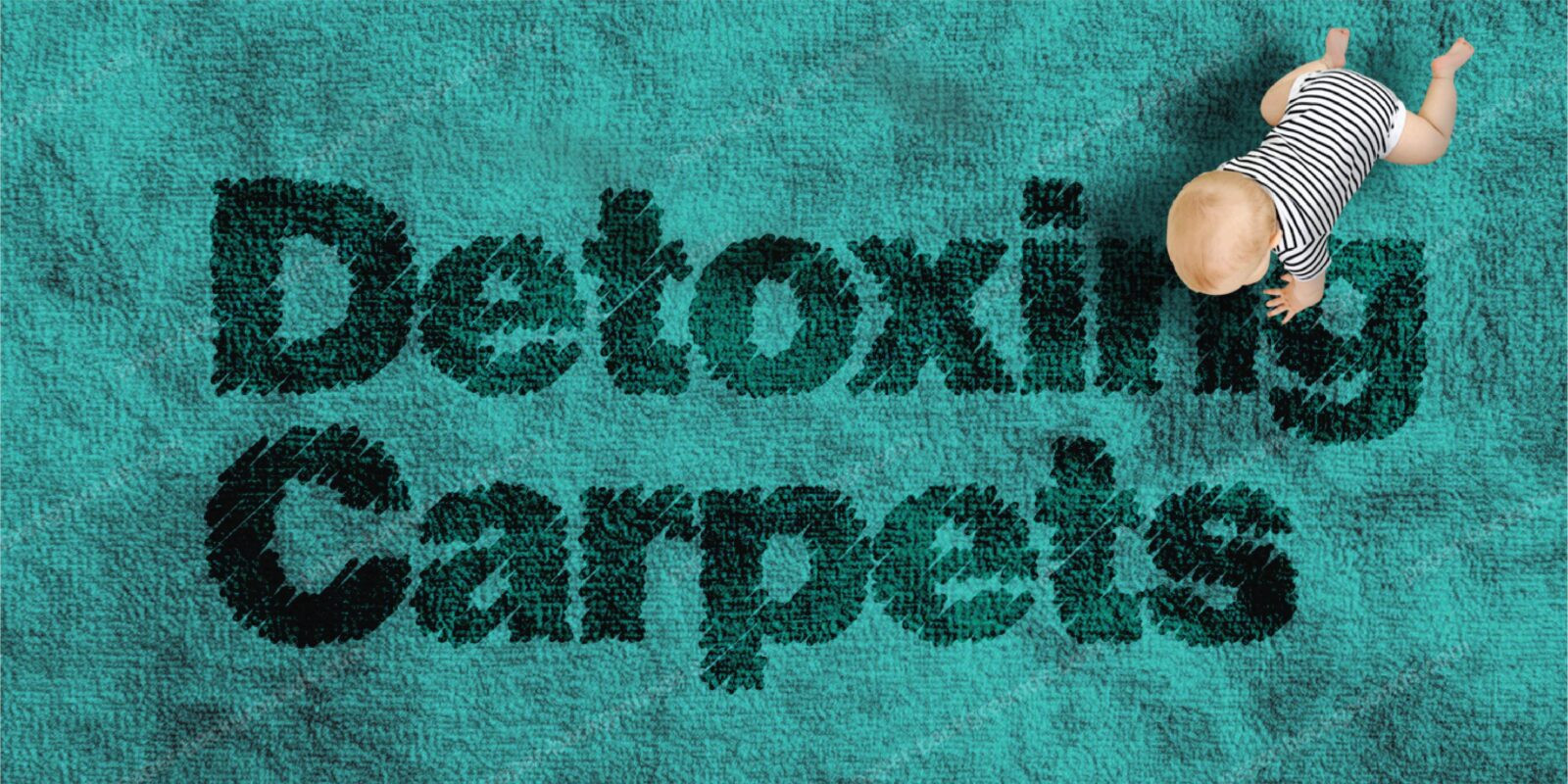We are exposed to chemicals everywhere in our daily lives. This exposure has been associated with numerous health impacts, such as cancer, weakening of the immune system and normal functioning of organs, disruption of the hormonal system and the reproductive system, birth defects and negative impacts on the mental, intellectual and physical development of children.
HEAL works with partners and decision-makers to minimise and ultimately end human exposure to hazardous and health-harming chemicals in Europe, and towards protective laws and regulations for a non-toxic environment.
Green 10 letter to the President of the European Parliament calling to address the climate, biodiversity and pollution emergency
26th July 2024
The Green 10 coalition, which HEAL is a part of, encourages the President of the European Parliament Roberta Metsola upon her re-election to put the climate, biodiversity and pollution emergency at the forefront of her tenure.
Green 10 letter to the President of the European Commission on upholding and scaling up Green Deal commitments
26th July 2024
The Green 10 coalition, which HEAL is a part of, encourages the EU Commission President to prioritize and scale up the Green Deal commitments towards zero pollution, thriving nature and health.
Letter: Civil society groups call on UNEP and the WHO to protect scientific integrity of scientific report on endocrine disruptors
17th July 2024
A number of NGOs sent a letter to UNEP and the WHO calling for a strict policy on conflicts of interest in the update process for the state-of-the-science report on endocrine disrupting chemicals (EDCs).
Letter: Protecting people’s health against climate, environmental threats and reducing health economic cost
16th July 2024
HEAL has sent a letter to Members of the European Parliament urging them to commit to protecting health against climate, environmental threats in the next five years, in their positions on legislative proposals as well as in all budgetary and financial decisions.
Ten pathways for better health 2024-2029
7th July 2024
With the new EU strategic agenda, and policy cycle to 2029, European Union decision-makers can choose the path to better health, by recognising the urgency to act and adopting environmental and climate policies that accelerate the necessary transformation in this decade.
NGOs response to ECHA’s call for evidence on aromatic brominated flame retardants
1st July 2024
The Health and Environment Alliance (HEAL), ChemSec, the Cancer Prevention and Education Society, Zero Waste…
NGOs response to ECHA’s call for evidence on aromatic brominated flame retardants
1st July 2024
The Health and Environment Alliance (HEAL), ChemSec, the Cancer Prevention and Education Society, Zero Waste…
HEAL’s comments on ECHA’s recommendation to amend REACH authorisation list entries for Dibutyl phthalate (DBP)
16th May 2024
HEAL supports the proposed amendments to the REACH authorisation list entries for Dibutyl phthalate (DBP), which is listed as a substance of very high concern under REACH due to its toxicity for reproductive prpoerties and its endocrine disrupting effects on human health and the environment.
HEAL’s comments on ECHA’s draft recommendation to include melamine in the authorisation list of REACH
16th May 2024
HEAL strongly supports the inclusion of melamine, a substance that's harmful for human health and the environment, in the authorisation list of REACH.
HEAL’s response to the EU Commission’s proposal to prohibit BPA and other bisphenols in food contact materials
8th March 2024
Commenting on the European Commission’s proposal to restrict the use of bisphenol A (BPA) and other bisphenols in food contact materials, HEAL calls for swift action and ambition to protect health and the environment against hazardous chemicals found in food packaging.
HEAL’s analysis of the draft European Parliament ENVI report regarding the legal proposal for reform of the CLP legislation
3rd May 2023
HEAL analyses the draft report of the European Parliament (EP) ENVI committee on the legal proposal for reform of the legislation on the classification, labelling, and packaging of chemicals (CLP).
Response to the public consultation on the revision of the legislation on the classification, labelling, and packaging of chemicals (CLP)
29th March 2023
HEAL welcomes the draft proposal for a revision of the CLP legislation and overall shares…
Polyrisk flyer: How micro- and nanoplastics in the environment might impact our health and immune system
30th March 2023
While evidence of the existence of microplastics within our bodies exists, we currently do not know how they affect human health. This new Polyrisk flyer illustrates how this EU-funded project aims to advance the science of how MNPs in our environment impacts health, particularly in relation to the immune system.
Q&A on animal testing and chemical safety assessments
27th February 2023
We are exposed to a wide mix of potentially harmful chemicals on a daily basis. To assess whether and how exposure to chemical substances can impact our health and the environment, European and national regulatory authorities rely on the results from several testing methods, including animal testing, when performing their safety assessment. In this Q&A, HEAL answers several key questions about the use of animal testing in the European Union.
How PFAS chemicals affect women, pregnancy and human development: Health actors call for urgent action to phase them out
25th May 2021
The International Federation of Gynecology and Obstetrics (FIGO), the Health and Environment Alliance (HEAL) and the University of California in San Francisco (UCSF) have published a fact sheet and infographic to call for immediate action against “forever chemicals”, to protect reproductive health, fertility and human development.
A 10+13 agroecology approach to shape policies and transform EU food systems
28th January 2021
This policy paper puts forward a proposal to mainstream agroecology into the policies governing EU food systems. It builds on the consensual vision of a coalition of EU civil society, farmers and scientific organizations to use the FAO ‘10 Elements of Agroecology’ and ‘13 Agroecological Principles’ as a framework to develop the appropriate instruments and targets for EU policies.
The problem of PFAS in Europe – joint NGO flyer
30th March 2020
Per- and Poly-fluoroalkyl Substances, more commonly known as PFAS, are a particularly harmful chemical group. In this flyer, HEAL, CHEMSEC, EEB, CHEM Trust and THINK-Film explain the problem of PFAS in Europe.
How endocrine disrupting chemicals affect women’s reproductive health: new factsheet and infographic by the FREIA project
9th March 2020
It is beyond a doubt that endocrine disrupting chemicals (EDCs) impact the health of humans and the environment globally. Surprisingly, we still don’t know exactly how EDCs can harm female reproductive health. The Health and Environment Alliance (HEAL) has teamed up with the FREIA project to launch a factsheet and infographic - available in English, Dutch and French - to introduce this research project and to illustrate how EDCs affect women’s health.
Infographic: The EU must protect people’s health and the environment against endocrine disrupting chemicals (EDCs)
3rd April 2024
The EDC-Free Europe coalition, of which HEAL is a member, has launched a new infographic illustrating the harmful impacts of exposure to known and suspected endocrine disruptors on our health and the environment.
Infographic: How can an EU-wide PFAS restriction be a game-changer for health?
27th March 2024
Per- and polyfluoroalkyl substances (PFAS), a class of over 10 000 chemicals also known as “forever chemicals’ are taxing our health and economy. HEAL’s new infographic highlights key strengths and weaknesses in the proposed EU restriction on PFAS.
Infographic: The EU must ban PVC!
7th November 2023
Polyvinyl Chloride (PVC) is a commonly used plastic that exposes people and the environment to toxic, carcinogenic chemicals and contaminants.
Infographic: How can a revised CLP Regulation help identify harmful endocrine disrupting chemicals?
13th July 2022
HEAL’s new infographic illustrates how the upcoming revision of the EU Classification, Labelling and Packaging (CLP) Regulation can help better identify harmful endocrine disrupting chemicals (EDCs) within European chemicals laws.
HEAL and European Cancer Leagues relaunch infographic illustrating how Europe can prevent cancer by tackling environmental pollutants
25th May 2022
To mark the start of the European Week Against Cancer 2022, the Health and Environment Alliance (HEAL) and the European Cancer Leagues (ECL) have teamed up to relaunch an infographic telling the story behind environmental cancer prevention.
Infographic: Reforming EU rules on the Classification, Labelling and Packaging of chemicals to better protect health
20th April 2022
This easy-to-use infographic explains why reforming EU rules on the Classification, Labelling and Packaging of chemicals (CLP) is an opportunity to better protect health in the European Union.
Green 10 letter to the President of the European Parliament calling to address the climate, biodiversity and pollution emergency
26th July 2024
The Green 10 coalition, which HEAL is a part of, encourages the President of the European Parliament Roberta Metsola upon her re-election to put the climate, biodiversity and pollution emergency at the forefront of her tenure.
Green 10 letter to the President of the European Commission on upholding and scaling up Green Deal commitments
26th July 2024
The Green 10 coalition, which HEAL is a part of, encourages the EU Commission President to prioritize and scale up the Green Deal commitments towards zero pollution, thriving nature and health.
Letter: Civil society groups call on UNEP and the WHO to protect scientific integrity of scientific report on endocrine disruptors
17th July 2024
A number of NGOs sent a letter to UNEP and the WHO calling for a strict policy on conflicts of interest in the update process for the state-of-the-science report on endocrine disrupting chemicals (EDCs).
Letter: Protecting people’s health against climate, environmental threats and reducing health economic cost
16th July 2024
HEAL has sent a letter to Members of the European Parliament urging them to commit to protecting health against climate, environmental threats in the next five years, in their positions on legislative proposals as well as in all budgetary and financial decisions.
Letter: Keep health in the scope of the EP’s ENVI Committee
1st July 2024
In a letter, HEAL urges Members of the European Parliament to keep the current scope of the Committee on the Environment, Public Health and Food Safety (ENVI) to protect health against the triple crises of climate change, pollution and biodiversity loss.
EU strategic agenda: Tackling pollution for healthy people, and a strong and secure Europe
25th June 2024
In a letter, HEAL urges EU Heads of State to include measures to tackle pollution for people’s health in their blueprint for the next five years of EU policymaking.
Press note: Health groups welcome vote on restriction of bisphenols in food packaging
12th June 2024
Press note: EU member states expert committee voted to ban some bisphenols, including bisphenol A (BPA), in food contact materials. This measure is much needed to protect people from these endocrine disrupting chemicals (EDCs), that have also been classified as toxic for reproduction.
Press Release: 73 EU candidates pledge a toxic-free future ahead of EU-elections
4th June 2024
Press release: In a move to prioritise public health and environmental sustainability, nineteen leading environmental and health organisations have united to call on EU candidates to commit to a toxic-free Europe.
Press note: New Study – Chemical exposure can lead to higher risk of metabolic syndrome in children
23rd May 2024
Press note: New Study – Chemical exposure can lead to higher risk of metabolic syndrome in children
Press note: Member States water down Toy Safety Legislation
15th May 2024
Press note: The Council of the EU adopted their position on the updated rules of the toy safety regulation, which leaves many gaps on children’s protection from harmful chemicals.
Press note: Health groups call on the European Parliament to protect children’s health from harmful chemicals in toys
12th March 2024
Press note: Health groups call on the European Parliament to protect children’s health from harmful chemicals in toys
Press note: Health groups welcome restriction on widely used sub-family of PFAS
1st March 2024
Press note: Member state’s representatives voted in the REACH Committee to restrict PFHxA – a subfamily of the “forever chemicals” PFAS - that is widely used in for example clothing and food contact materials.
‘Forever chemicals’ widespread in disposable food packaging from popular fast-food chains across Europe, new study shows
20th May 2021
The use of persistent and health-harming PFAS chemicals in disposable food packaging and tableware is a widespread practice across Europe, as shown in a study by Czech NGO Arnika, HEAL, CHEM Trust and six other non-profit organisations in Europe.
Turning the plastic tide: New HEAL report puts the spotlight on how chemicals in plastic are putting our health at risk
9th September 2020
Today the Health and Environment Alliance (HEAL) releases the primer 'Turning the Plastic Tide', unwrapping the story behind the chemicals in plastic that put our health at risk.
Toxic Soup: Dioxins in Plastic Toys
23rd November 2018
A new study, "Toxic Soup: Dioxins in Plastic Toys", shows alarming levels of very toxic brominated dioxins in eight toys and one hair clip made of recycled plastic stemming from electronic waste.
Toxic chemicals found in carpets sold by major European manufacturers
30th October 2018
New research has found toxic chemicals in carpets produced and sold by some of the…
European Study Exposing Toxic E-Waste Chemicals in Children’s Products Spurs Calls for Policy to End Recycling Exemptions for Hazardous Waste
16th October 2018
Environmental health researchers released alarming evidence today that toxic brominated flame retardants, hazardous chemicals from electronic waste that are known to disrupt thyroid function and cause neurological and attention deficits in children, are contaminating recycled plastics in consumer products across Europe.
Swept under the rug: new report reveals toxics in European carpets threatening health, environment and circular economy
6th March 2018
Brussels - Toxic substances linked to a range of adverse health impacts can be present…




